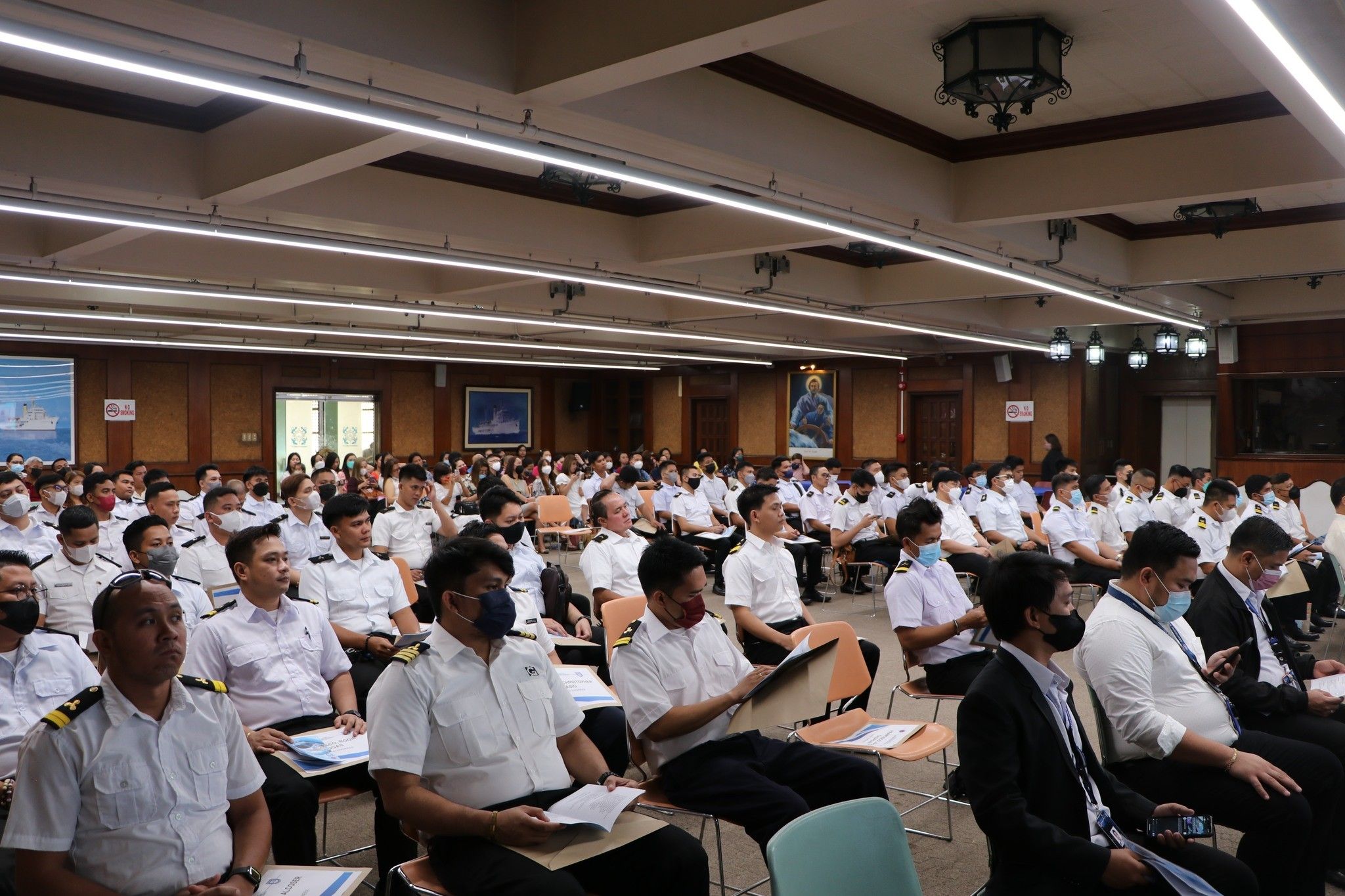
The Maritime Industry Authority held its first oath-taking ceremony for new Marine Deck and Engineer Officers into their new official ranks on March 23, 2023. Facebook / Maritime Industry Authority
MANILA — The Commission on Higher Education said that it is ready to work with other agencies to improve the education and skills training of Filipino seafarers to better meet international standards.
This comes after the European Commission ruled it will continue recognizing seafarer certificates issued by the Philippines to masters and officers after the country “made serious efforts to comply with requirements.” The announcement effectively saved the jobs of around 50,000 Filipinos working on EU-flag vessels.
“CHED is ready to work with Marina and the maritime [higher educational institutions] to fully implement the needed reforms based on the areas identified by the EU in its letter to guarantee that our graduates continue to be hired in international vessels,” CHED Chairman Popoy de Vera said in a statement on Monday.
The Philippines was flagged for grievances and deficiencies that were identified by the European Maritime Safety Agency from 2006. In 2021, the European Commission warned that it would no longer recognize Philippine seafarer certificates unless the country addressed the concerns.
The country tried to implement curricular reforms, examination and assessment, among other efforts to try to comply with the Standards of Training, Certification, and Watchkeeping for seafarers (STCW) Convention.
It also imposed a five-year moratorium on opening new maritime programs as CHED and the Maritime Industry Authority conducted a review of all maritime schools to check on their compliance with international standards.
“After so many years, we finally get a note that our compliance efforts are recognized by the EU,” De Vera said.
Areas for improvement
Philippine authorities said the European Commission’s decision comes with the condition that the country will address the six remaining issues identified by the EMSA.
These are:
- Monitoring, supervision, and evaluation of training and assessment
- Examination and assessment of competence
- Programme and course design and approval
- Availability and use of training facilities and simulators
- On-board training
- Issue, revalidation, and registration of certificates and endorsements
European Commissioner for Transport Adina Valean in a statement dated March 31 said the European Union is ready to provide “technical support” to the Philippines to help improve its seafarer education and skills training program.
Executive Assistant to the Secretary for Transport Joni Gesmundo in an interview with CNN Philippines’ “The Source” on Monday pointed out that the country’s efforts to improve seafarer training should have “interagency communication,” suggesting that the Philippine Coast Guard can fill in the gaps by providing qualified instructors or vessels for onboard training.
“We must look at other stakeholders who can give assistance,” Gesmundo said.

Leave A Comment